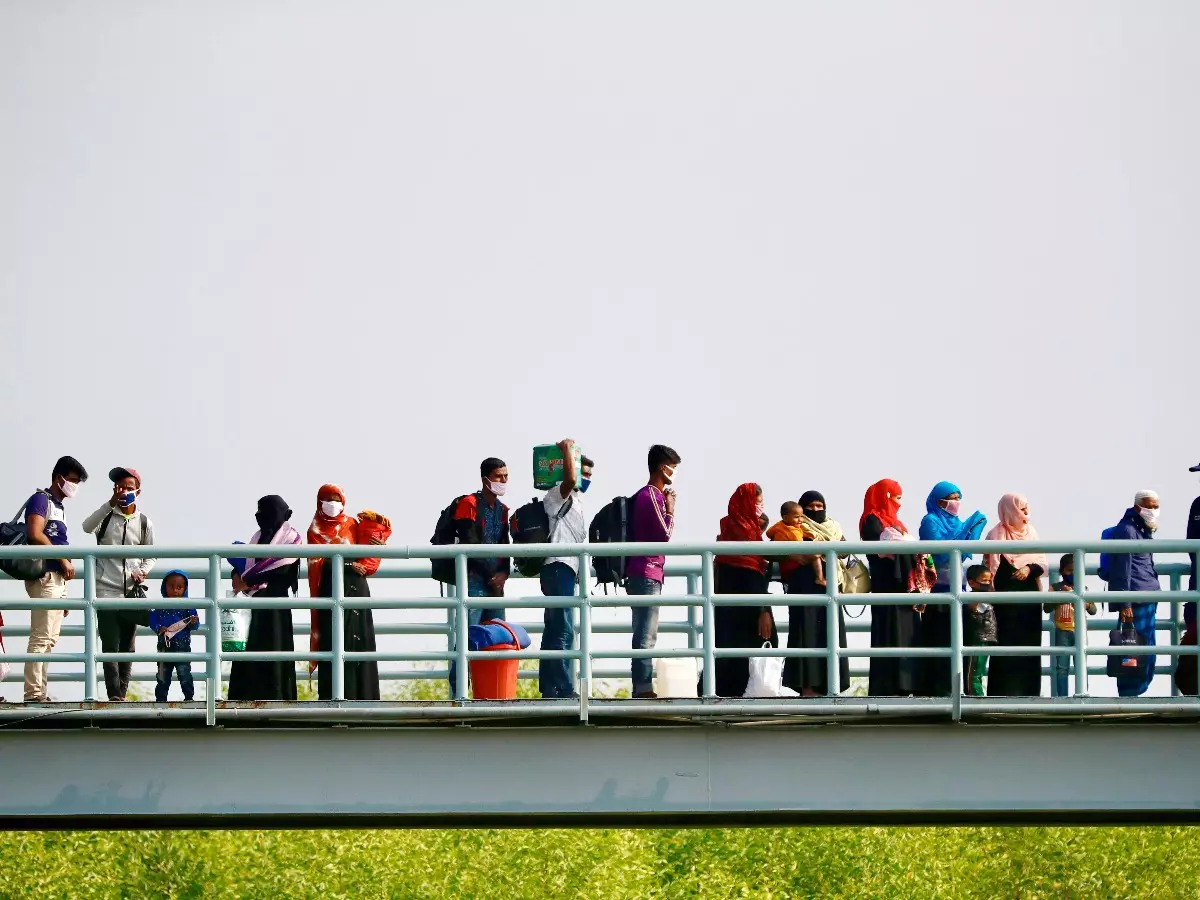Explained: Rohingya Refugees And Their Never Ending Sufferings
Rohingyas are a Muslim ethnic minority group who have lived in the Buddhist country Myanmar (previously called as Burma) for centuries. They are denied citizenship since 1982 and have been tortured and abused to a great extent that many leave the country and seek refuge in the nearby Bangladesh. Because they are denied citizenship, they are the world¡¯s largest stateless population. These refugees from Myanmar now reside in countries like India, B...Read More

Rohingyas are a Muslim ethnic minority group who have lived in the Buddhist country Myanmar (previously called as Burma) for centuries. They are denied citizenship since 1982 and have been tortured and abused to a great extent that many leave the country and seek refuge in the nearby Bangladesh. Because they are denied citizenship, they are the world¡¯s largest stateless population. These refugees from Myanmar now reside in countries like India, Bangladesh, Thailand, etc.
 BCCL
BCCL
Cox¡¯s Bazaar in Ukhia, Bangladesh is the world¡¯s largest refugee camp. This is because, In August 2017, armed attacks in Rakhine State, Myanmar forced hundreds of thousands of Rohingya to flee their homes. Many fled to Bangladesh, which led to the establishment of the Kutupalong refugee camp. As more than 8,00,000 refugees arrived in the Cox¡¯s bazaar region of Bangladesh, Kutupalong became the world¡¯s largest refugee camp.
Currently, the living conditions of the Rohingya refugees are worsening in the Kutupalong refugee camp as they have very few job opportunities and have very little access to formal education making them marginalised and poverty stricken.
What are refugees? What rights do they have?
Refugees are people who are forced to leave their home country because of a well-founded the fear of persecution. The main reasons for this fear are race religion, nationality, political opinion or membership in a particular social group. Because of this fear, these people cannot return back home.
 BCCL
BCCL
The 1951 refugee convention or the Geneva convention is a United Nations multilateral treaty that defines who a refugee is and sets out rights of the individuals who are granted asylum and also mentions the responsibilities of the nations who grant asylum. It also sets out which people do not qualify as refugees (example- war criminals). Under the convention, the refugees are issued refugee travel documents which enable them for visa-free travel.
The core principle of this convention is non-refoulement which means that a refugee should not be returned to country where they face serious threats to their lives and freedom. The articles of the convention highlight the fundamental rights they require like right to housing, work, education so that they can lead a better and independent life.
The impacts of being a refugee for the Rohingyas
Because they are a stateless population, they are denied the basic rights as they do not belong to any state and are extremely vulnerable to exploitation, abuse and gender-based violence. Also, in refugee camps like the Cox¡¯s bazaar which houses more than one million Rohingya refugees, the camps are the most crowded places.
 File Photo
File Photo
The refugees in Bangladesh are very vulnerable to elemental disasters as they have built their camps with bamboo and tarps. This is because they constantly face threats of floods and landslides meaning investment in concrete and bricks is not possible. Beyond the fact that their shelters could be destroyed, they also contact waterborne diseases because they don¡¯t have proper water and sanitation facilities. Over 11% of the children suffer from acute malnutrition and more than 30% suffer from chronic malnutrition in the refugee camps.
Because the Rohingya crisis is ongoing the situation is Myanmar does not seem to be improving, repatriation (sending the refugees back to their home countries) is not the best solution. Many NGOs and other organisations along with the UN refugee commission are working towards helping the refugees to lead a better life.
REFERENCES:
1. The Rohingya crisis, explained: 5 things you need to know. (August 10, 2022). In Concern.net.
2. What is a refugee? (n.d.). Retrieved from
3. About UNHCR- The 1951 Refugee Convention (n.d.). Retrieved from
